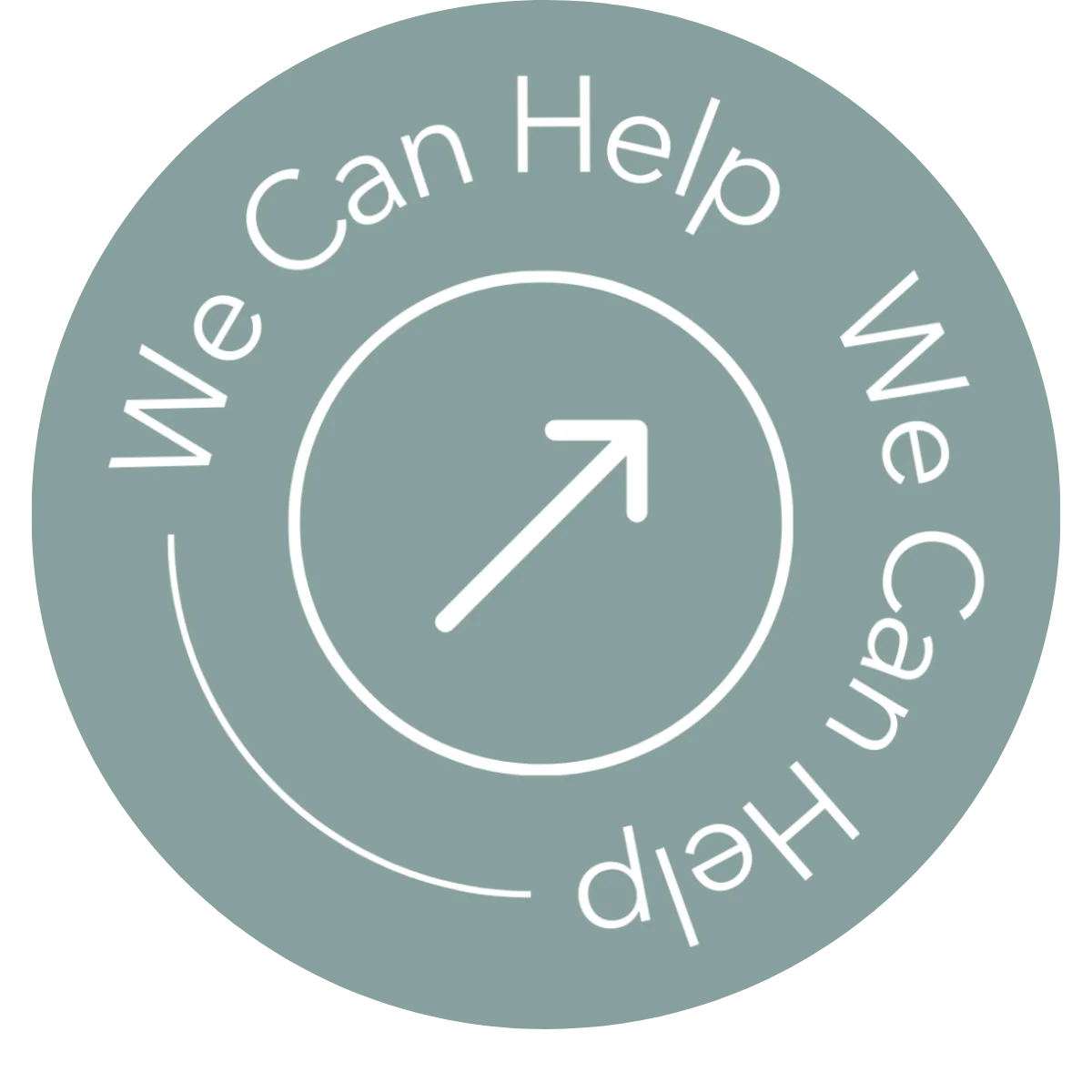IOP for Depression: What You Need to Know
Learn more about the many benefits of seeking treatment at an IOP for depression recovery and how Ethos Wellness can help.
What is Depression?
Depression is a common and serious mental health condition characterized by persistent feelings of sadness, hopelessness, and a lack of interest or pleasure in activities. It can affect a person’s thoughts, feelings, and behaviors. This can then lead to a range of emotional and physical symptoms.1
There are different types of depression, each with its specific characteristics and causes. Some types of depression may warrant getting help at an IOP for depression.
Here’s an overview of depression, its types, symptoms, causes, and risk factors:2

Types of Depression
Major Depressive Disorder (MDD)
This is the most common form of depression. It involves persistent and severe symptoms that interfere with daily life.
Persistent Depressive Disorder (PDD)
Formerly known as dysthymia, PDD is characterized by long-lasting, milder depressive symptoms that persist for at least two years.
Bipolar Disorder (Bipolar Depression)
Bipolar disorder involves periods of intense mood swings. This includes depressive episodes (bipolar depression) and manic or hypomanic episodes.
Seasonal Affective Disorder (SAD)
SAD is a type of depression that occurs seasonally. It often occurs during the fall and winter months when there is less natural sunlight.
Postpartum Depression
This affects some new mothers, often within the first few weeks after giving birth. It can lead to feelings of:
- Sadness
- Fatigue
- Difficulty bonding with the baby
Psychotic Depression
In this type, depressive symptoms are accompanied by psychosis. This may include hallucinations or delusions.
Atypical Depression
This form of depression includes symptoms like:
- Increased appetite
- Weight gain
- Excessive sleep
- A heavy feeling in the limbs
Common Symptoms of Depression
Depression can manifest with a variety of symptoms. These may include:
- Persistent sadness or low mood
- Loss of interest or pleasure in activities
- Fatigue or lack of energy
- Changes in appetite or weight
- Sleep disturbances (insomnia or oversleeping)
- Feelings of worthlessness or guilt
- Difficulty concentrating or making decisions
- Physical symptoms such as headaches or digestive problems
- Thoughts of death or suicide
Risk Factors
The exact causes of depression are not fully understood. But, it is believed to result from a combination of these factors:
- Genetic
- Biological
- Environmental
- Psychological
Brain Chemistry
Imbalances in neurotransmitters (chemical messengers in the brain) can play a role in depression. These neurotransmitters include:
- Serotonin
- Dopamine
- Norepinephrine
Family History
A family history of depression or other mood disorders increases the risk for depression.
Personal History
If you’ve had a previous episode of depression, you are at a higher risk for future episodes.
Gender
Women are more likely than men to experience depression.
Medical Conditions
Certain medical conditions can trigger depressive episodes. These include:
- Chronic illnesses like cancer
- Diabetes
- Heart disease
- Hormonal imbalances
Stressful Life Events
Trauma, loss of a loved one, or other major life stressors can trigger depression.
Medications and Substance Abuse
Some medications and substance abuse, including alcohol and drugs, can lead to depression.
What is an IOP for Depression?
An intensive outpatient program (IOP) is a structured and comprehensive treatment program designed to address mental health conditions, including depression. It provides a middle ground between inpatient and standard outpatient treatment.
Unlike inpatient treatment, people in an IOP for depression recovery do not live at a 24-hour care facility. This allows them to maintain their daily routines. But, an IOP offers more intensive and specialized care than traditional outpatient therapy.
Advantages of an IOP for Depression
One of the primary advantages of an IOP for depression recovery is its flexibility. Patients can attend therapy sessions while continuing to work, go to school, and maintain their daily responsibilities.
Difference Between an IOP for Depression vs. Standard Outpatient Therapy
An IOP for depression recovery differs from standard outpatient therapy in several key ways. These will be detailed below.
Program Structure
An IOP involves more frequent therapy sessions, often multiple times per week, even daily. The sessions are longer, lasting several hours per session.
An IOP for depression has a structured schedule with a mix of:
- Individual and group play therapy sessions
- Psychoeducation
- Other therapeutic activities
Treatment Intensity
IOP treatment offers a higher level of care than standard outpatient therapy. It’s suitable for those needing more support than weekly therapy but not 24-hour inpatient care. Group therapy is a key component, providing peer support and teaching coping skills.
An IOP for depression also addresses psychological, physical, and holistic aspects of a person, including:
- Mindfulness
- Stress reduction
- Wellness activities
Duration
An IOP for depression is short-term, often lasting several weeks to months. It focuses on acute symptoms and providing tools for recovery.
Standard outpatient therapy offers more flexibility in duration and frequency, accommodating long-term or short-term needs.
Coping Strategies and Skill Development in an IOP for Depression
Coping strategies and skills can be effectively taught in an IOP to help people manage depression symptoms on a daily basis. In fact, teaching coping strategies is a fundamental component of many programs designed for depression treatment.
Here’s how coping strategies and skills can be integrated into an IOP for depression recovery:
Group Therapy
In group therapy, patients share experiences and learn effective coping strategies in a supportive environment.
Cognitive-Behavioral Therapy (CBT)
CBT is employed to identify and change negative thought patterns and teach concrete coping strategies.
Mindfulness and Stress Reduction
An IOP incorporates mindfulness and relaxation techniques to enhance emotional awareness and stress management.
Emotion Regulation
Participants learn to identify and manage emotions effectively to reduce emotional distress.
Problem-Solving
Developing problem-solving skills helps address contributing factors to depression.
Healthy Lifestyle
An IOP emphasizes exercise, nutrition, and sleep for mood and energy improvement.
Relapse Prevention
Strategies for recognizing and managing triggers and early signs of relapse are taught.
Psychoeducation
Sessions enhance understanding of:
- Depression
- Its causes
- The importance of self-care
Individualization
Coping strategies are customized to each person’s unique needs and strengths.
Ethos Wellness IOP for Depression Recovery
Ethos Wellness is a leading mental health and wellness center with locations across Texas and Chicago. We are dedicated to providing comprehensive and compassionate care to people seeking support for their mental health needs.
Ethos Wellness’ IOP for depression includes a combination of primary therapeutic services aimed at addressing depression effectively. The specific services and approaches used may vary. This depends on the program’s philosophy and the needs of the patient.
Here are some common therapeutic services and strategies often included in an IOP for depression:
Individual Therapy
One-on-one counseling sessions occur with a licensed therapist or counselor. The goal is to explore and address the person’s specific issues, thoughts, and feelings related to depression.
One-on-one counseling sessions occur with a licensed therapist or counselor. The goal is to explore and address the person’s specific issues, thoughts, and feelings related to depression.
- Cognitive-behavioral therapy (CBT)
- Dialectical-behavior therapy (DBT)
- Other evidence-based therapies
Group Therapy
Group therapy sessions provide a supportive and structured environment for people with depression to:
- Share their experiences
- Learn from others
- Develop coping skills
Group therapy can help reduce feelings of isolation and provide a sense of community.
Medication Management
For people with severe depression or specific chemical imbalances, medication may be prescribed and monitored by a psychiatrist or psychiatric nurse practitioner as part of the treatment plan.
Psychoeducation
Education about depression, its causes, symptoms, and coping strategies can empower people to better understand their condition. It also allows them to make informed decisions about their treatment.
Mindfulness and Stress Reduction Techniques
Learning mindfulness meditation and stress reduction techniques can help people:
- Manage the symptoms of depression
- Reduce anxiety
- Improve emotional well-being
Family Therapy
In some cases, involving family members or loved ones in therapy sessions can help address family dynamics that may contribute to or worsen depression.
Holistic Approaches
Ethos Wellness may incorporate holistic therapies to address the physical and emotional aspects of depression.
This may include:
- Yoga
- Sandplay therapy
- Exercise programs
Relapse Prevention
Developing strategies to recognize and cope with triggers or warning signs of a depressive episode can be a crucial component of an IOP for depression.
Aftercare Planning
Preparing people for a successful transition back to regular outpatient therapy or ongoing support is essential. It ensures that the progress made in the IOP is maintained.
It’s important to note that the specific treatment plan and services offered in an IOP can vary from one program to another. Ethos Wellness’ IOP for depression has its own unique approach and services.
Assessing Eligibility for an IOP
We can evaluate whether you qualify for our IOP for depression. Our evaluation process often involves an initial intake or assessment session with one of our mental health professionals. During this session, we will gather information about your:
- Symptoms
- History
- Current needs
We will assess the severity of your depression and other relevant factors to make an informed recommendation regarding your treatment options. The goal is to provide a level of care that optimizes recovery.
Medication Management in an IOP for Depression
At Ethos Wellness, our role in medication management within an IOP for depression is to ensure that patients receive comprehensive and coordinated care that addresses both the therapeutic and pharmacological aspects of their treatment.
Here’s how medication management is typically integrated into our IOP:
Initial Assessment
We begin with a comprehensive assessment to evaluate depression symptoms and medical history.
Consultation with a Psychiatrist
If medication is considered, a consultation with a psychiatrist or psychiatric nurse practitioner is arranged to discuss treatment goals.
Medication Prescription
Medication is prescribed as needed. Doctors consider the type and severity of depression and individual response.
Medication Monitoring
Ongoing monitoring and adjustment of the medication regimen occur through regular follow-up appointments with the psychiatrist.
Collaboration with Therapy
Medication management is integrated with therapy sessions. This ensures a holistic approach to treatment.
Education and Informed Consent
At Ethos Wellness, we:
- Provide medication education
- Obtain informed consent
- Address any questions or concerns
Medication Compliance
Medication Compliance
Holistic Approach
Our program emphasizes holistic wellness practices that complement medication management.
Transparency and Communication
We maintain open communication and involve patients in treatment decisions. By integrating medication management into our IOP for depression, we aim to provide a well-rounded and personalized approach to treatment.
This approach combines the benefits of therapy, medication, and holistic wellness strategies. The goal is to support patients in their journey toward improved mental health and well-being.

Expected Outcomes and Goals
The ultimate goal of the Ethos Wellness’ IOP for depression is to equip people with the tools and strategies they need to achieve lasting recovery.
Short-term goals may include symptom reduction and improved daily functioning. Long-term goals encompass sustained emotional well-being and a reduced risk of relapse.
Here’s how participating in an IOP for depression can yield various personalized outcomes:
Symptom Improvement
The IOP aims to:
- Reduce depressive symptoms
- Enhance mood
- Reduce hopelessness
Enhanced Coping Abilities
Patients learn coping skills to manage depression, stress, and life challenges.
Improved Functioning
Recovery fosters effective daily functioning in:
- Work
- Relationships
- Self-care
- Responsibilities
Self-Awareness
A greater understanding of depression’s triggers empowers proactive mental health management.
Sustained Recovery
The ultimate goal is to achieve lasting mental health stability. Patients will benefit from:
- Improved emotional regulation
- Resilience development
- Enhanced self-esteem
- Effective communication skills
- A focus on a healthy lifestyle
Additionally, peer support through group therapy fosters connections and reduces isolation.
Important Note About Treatment
It’s important to note that the specific goals and outcomes can vary from person to person. This depends on their unique needs and circumstances. The aim is to support people in their journey toward improved mental health and a better quality of life.
Get in Touch With Us
Uncover the path to hope and healing through our specialized IOP for depression. At Ethos Wellness, our devoted team is unwaveringly committed to your journey toward recovery. We are guided by our core mission – to empower people to achieve enhanced mental health and well-being.
We understand the challenges of depression. Our comprehensive IOP is designed to provide the support and resources necessary for your unique recovery.
Don’t hesitate to reach out today and take that pivotal first step towards a brighter future, where improved mental health and renewed vitality are within your reach.
Resources
- https://www.nimh.nih.gov/health/topics/depression
- https://www.mayoclinic.org/diseases-conditions/depression/symptoms-causes/syc-20356007
- https://www.webmd.com/depression/depression-types
- https://www.verywellmind.com/common-causes-of-depression-1066772
- https://www.medicalnewstoday.com/articles/intensive-outpatient-therapy


